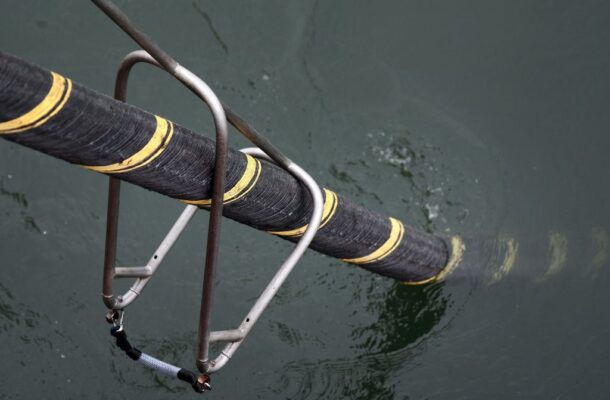Now with added fibre

Australia’s support for the deployment of international fibre-optic cables in the South Pacific is a relatively recent development. Prior to 2017, the Australian government’s support for digital development in Pacific island countries (PICs) was focused only on cyber capacity building and cybersecurity assistance, leaving the task of connectivity itself to the private sector and international development banks such as the World Bank and the Asian Development Bank (ADB).
But Australia’s newly launched 2023-2030 Cyber Security Strategy has signalled an evolving commitment to building secure digital infrastructure for PICs. The impact of this on the jostle for influence in the Pacific—even at a time in which Australia is re-stabilising its relationship with China—can’t be understated.
The origins of the strategy go back to 2017. In that year, Huawei Marine, which became HMN Tech in 2019, floated a project that would supply an underwater cable linking Australia and Solomon Islands. With the Australian government growing more wary of the risks of working with Chinese companies with close ties to Beijing, when an agreement was finalised with the Solomon Islands Submarine Cable Company in 2017 to link Honiara to Sydney, Australia’s policy shifted.
The prospect of a Huawei Marine cable connecting Australia’s core network in Sydney to Honiara presented several potential vulnerabilities. In response, Australia funded its own new subsea cable project—the Coral Sea Cable, linking Sydney, Honiara and Port Moresby—which the government entrusted to Melbourne-based Vocus Group. Supply was then contracted to a well-established company working under the umbrella of Finnish telecommunications giant Nokia.
The cable project then became part of the government’s ‘Pacific Step Up’, with official announcements on it making no direct reference to China. This was a crucial early step in a broader shift that continued with the creation of the Australian Infrastructure Financing Facility for the Pacific (AIFFP) in 2019. The AIFFP is a vehicle to provide for funding infrastructure that helps Australia compete with China-driven projects in the Pacific when they pose a threat to Australian interests and security.
The AIFFP is now a cornerstone of Australia’s strategy in the Pacific. The agency is co-funding two ongoing cable projects, the Palau Cable and the East Micronesia Cable (EMC), with Japanese and American partners. Like the Coral Sea Cable, the funding of the EMC has a geopolitical element. Although the ADB initially led the original project, and HMN Tech seemed likely to win the tender, the project was canceled in 2021. Subsequently, in a collaborative effort, Japan, the US and Australia signed a memorandum of understanding with Nauru, the Federated States of Micronesia and Kiribati to eventually resuscitate the project by funding it and monitoring the choice of the cable supplier.
NEC, a Japanese company, was selected as the supplier in June 2023. Once again, HMN Tech had been ousted from its chance to shape the digital landscape in the South Pacific. Given the cost of this kind of infrastructure, involving Indo-Pacific partners was crucial to Australia’s success. Collaborating with Japan and the US allowed Australia to provide the region development assistance while limiting the expansion of Chinese technology investment.
Australia’s interest in better digital infrastructure for PICs seems to be extending to domestic networks too, especially with interest in 5G growing. In 2021, with a $1.3 billion loan from Export Finance Australia (EFA), the Australian government committed to supporting Telstra’s acquisition of Digicel Pacific, again with Japanese and American support. The EFA was able to lend to Telstra as the acquisition was seen as supporting the development of PICs. It then brought Digicel Pacific into the ‘Telstra Family’, echoing the government’s ‘Pacific Family’ narrative. In the six PICs where it operates—including Papua New Guinea, Fiji, Vanuatu, Samoa, Tonga and Nauru—Digicel Pacific will also have to deploy non-Huawei or ZTE Corporation equipment for upcoming 5G networks. Additionally, the existing Chinese 3G and 4G equipment will be replaced as it reaches its end of life.
The end of 2023 was rich with new announcements about connectivity in the South Pacific. Google announced cable projects at first linking Australia, the US, Fiji and French Polynesia, though it includes the installation of branching units that will allow neighbouring islands to connect to it in the future. The US is considering co-investing in the projects with the Australian government. In addition, the Hawaiki Nui cable project—which will connect parts of the US (Los Angeles, Hawaii and American Samoa), French Polynesia, New Zealand, Australia, Indonesia and Singapore—has also been provided an AIFFP grant for the funding of branching units that will benefit other PICs along the cable route.
That said, some branching units already exist, including on the first cable built by Hawaiki, that remain unused. Many Pacific governments don’t have sufficient financial resources to connect their territory to the cable’s main trunk. This raises the question of whether Australia or the US could help fund these efforts and finally effectively connect many more Pacific islands to the region’s digital backbone.
Connectivity in the Pacific is of strategic importance to the whole Indo-Pacific, and so to the Australian government, which sees investment in a more connected region as a means to foster both development and regional security. For that matter, the 2023-2030 Australian Cyber Security Strategy includes $78 million of investment in submarine cables in the Pacific through the AIFFP. Additionally, the Quad Partnership for Cable Connectivity and Resilience was set up during the Quad Leaders’ Summit in May 2023. However, as Australia proceeds, decision-makers must keep the needs of PICs front-of-mind and avoid letting short-term strategic games get in the way of the Pacific’s long-term security and prosperity.
This article was published by The Strategist.
Sophie Hamel is a PhD candidate in geography at the French Institute of Geopolitics, University of Paris 8 where she contributes to the Geode (Geopolitics of the Datasphere) research project.














